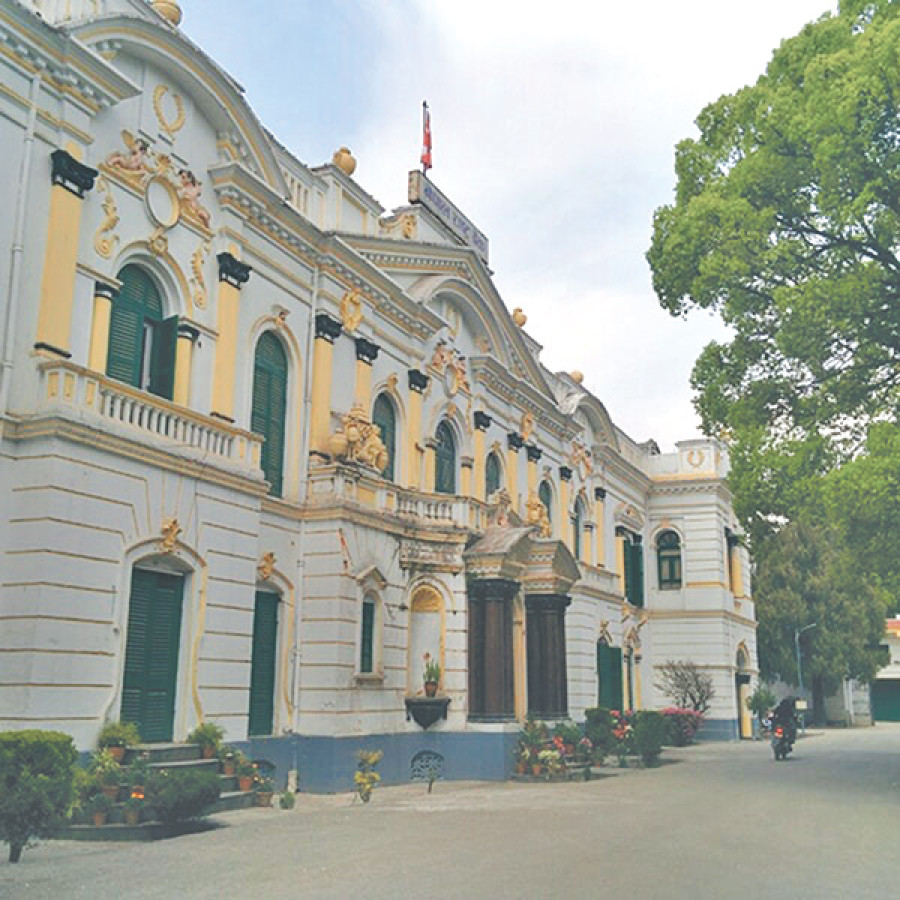Valley
Officials in dilemma over awarding central bank building deal to Pappu
The National Reconstruction Authority is in a dilemma over awarding the contract for constructing a Nepal Rastra Bank building to a joint venture involving the Pappu Construction due to the controversy surrounding the contractor which has quoted the lowest price for the post-earthquake rebuilding project.
Prithvi Man Shrestha
The National Reconstruction Authority is in a dilemma over awarding the contract for constructing a Nepal Rastra Bank building to a joint venture involving the Pappu Construction due to the controversy surrounding the contractor which has quoted the lowest price for the post-earthquake rebuilding project.
On Friday, the Commission for Investigation of Abuse of Authority (CIAA) filed a corruption case at the Special Court against Pappu Construction owners—Hari Narayan Rauniyar and his son Sumit Rauniyar—over substandard works in building a bridge over the Babai river in Bardiya.
Hari Narayan, who is a member of the House of Representatives for the Sanghiya Samajbadi Forum-Nepal, has been suspended after the CIAA filed a charge sheet at the Special Court. The company is notorious for delaying development projects in most cases where it has bagged the contract.
This puts the NRA, responsible for constructing the central bank’s building at Baluwatar in Kathmandu, in a dilemma whether to award the contract to the SRBC Pappu JV that quoted the lowest price of Rs2.06 billion among 12 bidders that passed technical evaluation.
The structure is being rebuilt after the deadly earthquake in 2015 damaged the old NRB building. It was demolished to create space for a new building. Amid the controversy, the NRA has been unable to decide whether to issue a letter of intent to award the contract to SRBC Pappu JV two weeks after the financial bid was opened. The body formed to coordinate post-earthquake reconstruction had invited bids from construction companies in July.
“As per the Public Procurement Act, we are bound to award the contract to the joint venture involving the Pappu because it has passed technical evaluation and has quoted the lowest price in financial bid,” said Rajuman Manandhar, joint-secretary at the NRA. “But we also cannot ignore the controversy surrounding the company, the case filed by the CIAA and public perception of such a move on the government.”
The NRA plans to consult the prime minister, who heads of the NRA’s directive committee, on the matter. Manandhar said the chief executive officer of the authority is planning to meet PM KP Sharma Oli on the matter.
The NRB is worried that awarding the contract to the Pappu could delay construction of the building estimated to be over in 30 months.
“We are concerned what will happen to construction works if the contractor goes to jail after deal with the Pappu as the corruption case has already been filed in court,” said Deputy Governor Chintamani Siwakoti. “We are also concerned whether the controversial company will maintain quality. NRB officials are having sleepless nights since news broke out that the Pappu is the frontrunner for the contract.”
Siwakoti said the central bank had raised its concerns with the NRA and other government agencies, urging the authorities to find ways to deny Pappu the contract.
But there is hardly any legal way to deny the SRBC Pappu JV a deal, NRA officials said. The NRA can’t refuse Pappu the contract because the Public Procurement Monitoring Office (PPMO) has not blacklisted the company. The government can deny a blacklisted company contracts for a period ranging from one year to three years as per the law.
However, even before a contractor is blacklisted, the PPMO can bar it from getting further government contracts until the monitoring office decides whether to blacklist the contractor based on the recommendation of the concerned government agency.
As per Clause 141 of the Public Procurement Regulation, the PPMO has to decide whether to blacklist the contractor within six months since the recommendation. “So, even before blacklisting, we can deny contract for a maximum of six months,” said a senior official at the PPMO. “As no request for blacklisting the Pappu has been received, this clause cannot be implemented right now.”
Clause 63 of the Public Procurement Act allows a government office to blacklist any contractor who is convicted in a criminal case. The charge the Pappu faces is related to corruption, a criminal offence, and a verdict has yet to come out.
The Pappu passed technical evaluation because the projects it has grabbed already are not part of the evaluation criteria, according to Manandhar.
The law prevents the government from scrapping the entire bidding process to deny the Pappu this contract because the Public Procurement Act spells out specified conditions on which the bidding process could be scrapped.
According to Clause 26 of the Act, procurement proceedings may be cancelled if none of the bids substantially responds to the technical specifications mentioned in the bidding document, bid price of the lowest evaluated bidder is above the cost estimate, construction work is no longer required and collusion among contractors is confirmed.




 9.7°C Kathmandu
9.7°C Kathmandu














